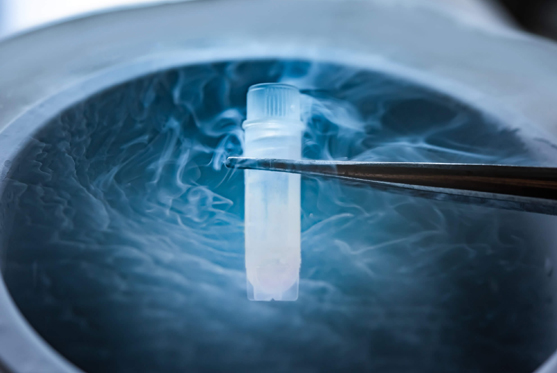
Cryopreservation is a widely used fertility technique where human gametes (sperm, eggs) or embryos are preserved by freezing them at extremely low temperatures using liquid nitrogen. This process ensures long-term storage without affecting their functionality. Modern methods such as vitrification prevent ice crystal formation by rapidly cooling embryos into a glass-like state, making the procedure highly effective in assisted reproduction.
Embryos and gametes are highly sensitive to temperature fluctuations. Sudden freezing can damage tissues, so cryoprotectants are used to protect the cells during freezing, improving their survival rate—a process known as cryo-survival.
At fertility centers like Progenesis, cryopreserved gametes are carefully handled to ensure fertility potential remains intact, even in patients with normal semen profiles.